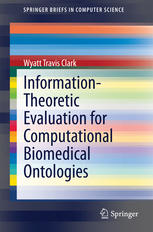

Most ebook files are in PDF format, so you can easily read them using various software such as Foxit Reader or directly on the Google Chrome browser.
Some ebook files are released by publishers in other formats such as .awz, .mobi, .epub, .fb2, etc. You may need to install specific software to read these formats on mobile/PC, such as Calibre.
Please read the tutorial at this link: https://ebookbell.com/faq
We offer FREE conversion to the popular formats you request; however, this may take some time. Therefore, right after payment, please email us, and we will try to provide the service as quickly as possible.
For some exceptional file formats or broken links (if any), please refrain from opening any disputes. Instead, email us first, and we will try to assist within a maximum of 6 hours.
EbookBell Team

4.7
86 reviewsThe development of effective methods for the prediction of ontological annotations is an important goal in computational biology, yet evaluating their performance is difficult due to problems caused by the structure of biomedical ontologies and incomplete annotations of genes. This work proposes an information-theoretic framework to evaluate the performance of computational protein function prediction. A Bayesian network is used, structured according to the underlying ontology, to model the prior probability of a protein's function. The concepts of misinformation and remaining uncertainty are then defined, that can be seen as analogs of precision and recall. Finally, semantic distance is proposed as a single statistic for ranking classification models. The approach is evaluated by analyzing three protein function predictors of gene ontology terms. The work addresses several weaknesses of current metrics, and provides valuable insights into the performance of protein function prediction tools.